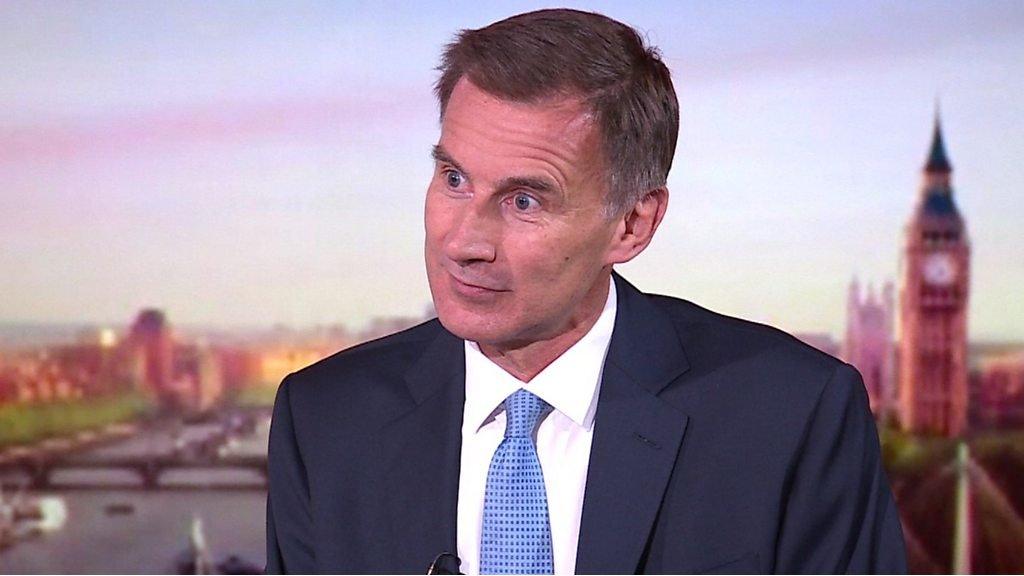Tax cut beauty contest could turn ugly
- Published

As the list of Tory party leadership candidates grows ever longer, there is one issue that has become the key battleground of this race - tax.
So far, many have signalled they will cut taxes.
But one wonders whether while drawing up their campaign pledges, the hopefuls had chance to look at a report by the Office for Budget Responsibility (OBR), the government's independent forecaster.
Last week, it warned that the UK was facing a number of long-term borrowing challenges.
In 50 years' time, says the OBR, the UK will be grappling with an ageing society and a shrinking workforce, while trying at the same time to reach net zero.
The OBR's warnings might seem too far in the future for a population battling with soaring living costs right now.
But a tax cut would also seem difficult to square with a 2019 Conservative manifesto pledge, which committed the party to balancing the current budget by the middle of the decade.
That's balancing day-to-day spending with tax revenue and also getting debt falling as a share of the total economy or gross domestic product (GDP).
So far, government policies, including a rise in National Insurance contributions, have raised the tax burden significantly, by 3% of GDP. That has funded public spending increases of 2% of GDP, which has left about £30bn of what is known as headroom.
Most of the candidates seem to be using all of that up in one form or another. And then some.
We await more detailed accounts of their plans.

Watch Boris Johnson Quits: What Next & More Questions on iPlayer.

But the really big point is that the £30bn doesn't exist any more. As OBR chairman Richard Hughes told me last week: "We've got to remember the risks of the outlook for growing.
"You've got risks around energy prices, which are all already rising above the levels that we've seen in our last forecast. You've got risks to interest rates, which are also rising above levels we saw in the March forecasts".
Put most simply, there is a tangible risk of recession, or at least stagnation, arising from the rising cost of living.
May's economic growth figures, which are due on Wednesday, are likely to show that the economy is on course to shrink in this quarter.
Cabinet ministers vying for Number 10 are now openly embracing forecasts showing the UK has the worst outlook for growth next year among advanced economies. These were the same forecasts that were played down last year but are now being marshalled as an argument for a stimulus.
So if the tax burden is to be reined in, perhaps these candidates will borrow more and yet again abandon the fiscal rules and 2019 manifesto promises. Or some of the promised post-pandemic increase in the size of the state - from social care funding to reducing NHS waiting lists, to "levelling up" funding - will have to be rolled back.
As Mr Hughes put it to me about those advocating tax cuts now: "It may also require them to revisit some of their spending priorities if they want to meet those fiscal objectives, which they've set for themselves in the manifesto".
There is obviously a wider political canvas here. This leadership contest is to impress at first Conservative MPs and then the party's membership. In theory that would suggest an appeal to low tax, small state thinking. But that is not always the same thing as the fiscal conservatism of balanced budgets. And how coherent all that is, with the appeal to former Labour areas won at the last election for example, is another interesting question.
Then the bigger questions about even more significant changes, such as the effective loss of £30bn a year in petrol taxes, and funding an ageing society with a shrinking workforce, loom even larger from the pages of the OBR document.
Related topics
- Published10 July 2022
